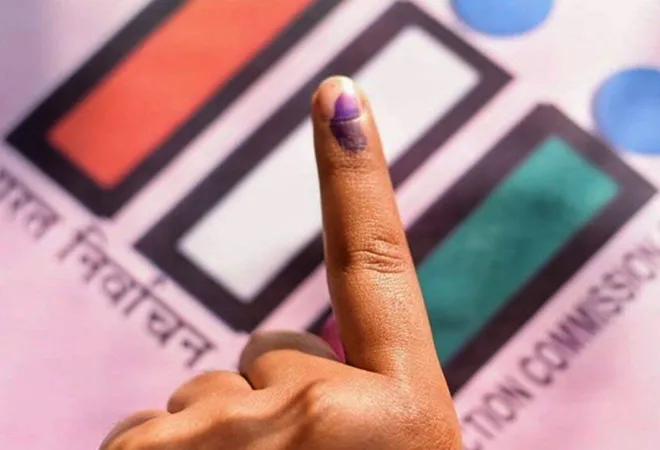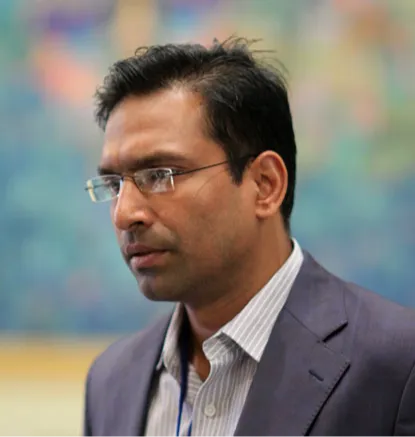
While all eyes are on the high-profile battle in Gujarat and rightly so, one would have expected less attention on the upcoming Municipal Corporation of Delhi (MCD) polls. On the contrary, there is increasing attention being paid to the prized battle in the national capital. Big billboards, the sheer number of rallies, high decibel campaigns involving top guns of three key parties viz the Bharatiya Janata Party (BJP), the Aam Aadmi Party (AAP); and the Indian National Congress (INC) are a testimony to the prestige attached to winning the local bodies polls in Delhi. Among one of the largest municipal bodies in the world, MCD directly caters to 1.1 crore residents in terms of roads, sanitation, waste management, even running of primary schools and dispensaries and not to mention, being the capital of the country, it finds itself at a unique junction of power, where both the central government, and the state government are competing players.
The merger plans had not been made official until the State Election Commission indefinitely postponed the date of the municipal elections in early 2022.
The tensions surrounding the MCD polls to be held on 4th December have been high since they were postponed from their original date in April 2022. Since 2011, the MCD had existed as three separate municipal corporations: For the North (NDMC), South (SDMC), and East (EDMC) of Delhi. However, in March 2022, the central government approved the Delhi Municipal Corporation (Amendment) Bill to reunify the three municipal bodies into a single entity. The merger plans had not been made official until the State Election Commission indefinitely postponed the date of the municipal elections in early 2022. Following the merger, a delimitation exercise reduced the number of contestable MCD seats from 272 to 250. A whooping 1,349 candidates from Delhi’s big three, the BJP, the AAP, and the INC, are battling for the 250 seats across 12 zones in Delhi.
Promises galore
As the national capital is perennially entangled with governance and environmental challenges, the local polls have high stakes for average residents. Delhi is the world’s most air-polluted city, with severe health effects and disruptions in daily life. Water pollution, loss of biodiversity, municipal waste, dust, and noise pollution are the other major environmental challenges that Delhi is facing. It also consistently ranks low on women’s safety, remaining the most unsafe metropolitan city for women in India. According to the National Crime Records Bureau data, crimes against women surged by 41 percent, going from 9,782 reported cases in 2020 to 13,892 cases in 2021.
All three major parties as mentioned above have released their manifestoes detailing plans of action to address city’s development and governance challenges. In a rare show of commonality, all parties have identified clearing the three landfill sites (“kude ka Qutub Minar”) as the principal mountain they will scale, if elected.
The AAP has set a five-year timeline to solve the city’s problem of garbage, and also delineated measures it would take to improve the waste management system, including consultations with scientists and experts.
The AAP’s “Kejriwal ki Sarkar, Kejriwal ka Paarshad” campaign outlines 10 guarantees to the Delhi residents ahead of the MCD elections, focused on cleanliness, tackling corruption within the MCD, improving infrastructure and public amenities, and making changes within the municipal workforce and ensuring regular wages for the employees. The AAP has set a five-year timeline to solve the city’s problem of garbage, and also delineated measures it would take to improve the waste management system, including consultations with scientists and experts. AAP’s electoral appeal lies in having power of the State government and if the party wins the local body elections, it would eliminate tensions between the agenda of the MCD and the state.
The BJP’s campaign outlines “Vachan Patra” and “Sankalp Patra” focusing on waste management and structurally improving the management of MCD. The standout promise is free houses for slum dwellers. Recently, the party handed over 3,024 EWS flats to beneficiaries under the slum rehabilitation project. Further, the party has promised to waive off licences for factories in authorised industrial areas within the first 100 days, and facilitate e-governance through mobile applications.
Meanwhile, the INC has taken up air pollution as its chief target, promising to reduce its toxic levels. The Congress’s manifesto titled “Meri Chamakti Delhi” promises to initiate structural reforms within the MCD, targeting changes in the workforce, and doubling the income of the municipalities. Further, Congress has also promised better citizens’ participation, more involvement of women, and a master drainage plan for the city.
The Congress’s manifesto titled “Meri Chamakti Delhi” promises to initiate structural reforms within the MCD, targeting changes in the workforce, and doubling the income of the municipalities.
All three parties have been making promises of solving some major issues for the residents of Delhi—corruption, flooding, slums, improper garbage disposal, and irregular pay—creating some overlap within the election manifestos. The results of the poll are, therefore, likely to be based more on the popularity of the party and their past deliverables than what are being promised.
A prestige battle
Although the BJP has not been in power in Delhi since 1998 (when late Sushma Swaraj became Chief Minister for 52 days), it has been completely dominating the MCD for the majority of the last two decades. BJP has won majority seats consistently in the past three elections: in 2007 and 2012, when Sheila Dikshit from the Congress was the Chief Minister; and in 2017, when Arvind Kejriwal of AAP headed the Delhi government. A fourth victory, while Kejriwal serving as Chief Minister, retains political significance for the BJP in the national capital. In short, it is a prestige battle for the BJP to continue its dominance in the MCD and to checkmate AAP’s all-out efforts to wrest the control on municipal bodies. This is reflected in saffron party launching a high-decibel campaign involving its top guns including Union Ministers Amit Shah, Rajnath Singh, Nitin Gadkari, party president J.P. Nadda, seven chief ministers and as many as 40 star campaigners being deployed to reach out to Delhi voters. In short, while the party has been mounting all its resources for Gujarat polls, it is investing everything at its disposal to maintain party’s grip on capital’s local bodies.
It is a prestige battle for the BJP to continue its dominance in the MCD and to checkmate AAP’s all-out efforts to wrest the control on municipal bodies.
Compared to the BJP, MCD polls assume far greater significance for the ruling AAP and its Chief Minister Arvind Kejriwal. While the newbie party has completely dominated the assembly elections since 2015 when it won 67 seats out of 70 seats, it has not been able to wrest MCD from the BJP. Despite launching a massive campaign to dislodge BJP, the AAP could win only 49 seats out of 272 seats in 2017 MCD polls. Given a number of municipal services that the MCD and Delhi government cater for Delhi residents are similar (often they duplicate each other), lack of any functional control over the MCD has constrained AAP’s ambitious agenda to transform the governance in Delhi. In fact, much of AAP’s manifesto for Delhi laments the party lacking functional control over MCD and its emotional appeal to capital’s voters to correct this ‘governance anomaly’ to see any visible changes on many pressing issues faced by Delhi residents. In short, the AAP’s key pitch in the MCD polls is to let it govern both at the state and local bodies to steer a positive transformation in Delhi’s civic amenities. In this regard, the AAP is trying to capitalise on BJP’s anti-incumbency disadvantage. Unsurprisingly, the AAP is ready to deploy every populist promise to snatch the MCD from the BJP. The clearest proof is Kejriwal’s latest promise to Resident Welfare Associations (RWAs) in the city. If voted into power, the AAP will offer the status of ‘mini-councillors’ to RWAs. In short, both the incumbent BJP and the AAP are leaving no stone unturned to win the prestige battle in the national capital.
The views expressed above belong to the author(s). ORF research and analyses now available on Telegram! Click here to access our curated content — blogs, longforms and interviews.




 PREV
PREV



